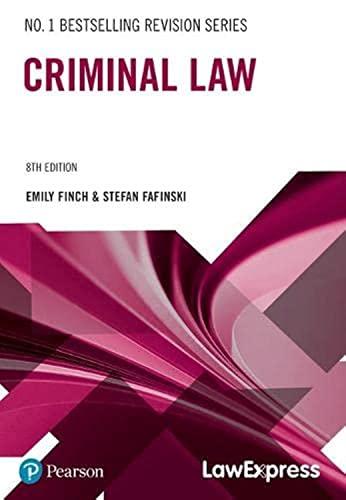Answered step by step
Verified Expert Solution
Question
1 Approved Answer
Resch v. Canadian Tire Corporation, 2006 CanLII 11930 (ON SC), 17 BLR (4th) 301 Resch purchased a bicycle for his stepson from a Canadian Tire
Resch v. Canadian Tire Corporation, 2006 CanLII 11930 (ON SC), 17 BLR (4th) 301 Resch purchased a bicycle for his stepson from a Canadian Tire dealership owned by Mills-Roy Enterprises Ltd. Because of a defective fork on the bike, the stepson was seriously injured in an accident, and he and his family brought this action against Canadian Tire, Mills-Roy (the dealership), and Procycle Group Inc. (the manufacturer). Explain what course of action the various parties would have against each of the defendants and any arguments that could be raised in their defence. Explain the likely outcome. Would it make any difference to your answer to know that the stepson paid some funds toward the purchase of the bike? Also, discuss this very interesting case: Royal Bank of Canada v. Zuk, 2017 BCSC 2069 (CanLII) RBC asked for summary judgment against Zuk, the guarantor of a debt owed by a company owned by her husband. She claimed that her guarantee was not binding because RBC failed in its duty of disclosure to her by not notifying her of material variations in the debt obligation of the company. The Court held that these variations, including changes in the available credit facilities, were indeed material variations. Nevertheless, Zuk had to pay the debt owed to RBC. Why would the Court make such a decision
Step by Step Solution
There are 3 Steps involved in it
Step: 1

Get Instant Access to Expert-Tailored Solutions
See step-by-step solutions with expert insights and AI powered tools for academic success
Step: 2

Step: 3

Ace Your Homework with AI
Get the answers you need in no time with our AI-driven, step-by-step assistance
Get Started


